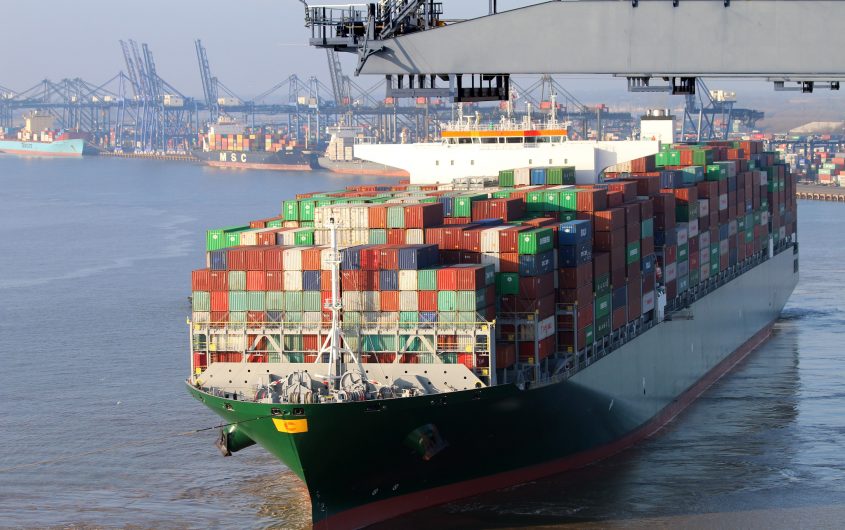AGI News
Instead of Trade Wars, the U.S. and EU Need a ‘Safe Trade’ Agenda

International Maritime Organization via Flickr

Peter S. Rashish
Vice President; Director, Geoeconomics Program
Peter S. Rashish, who counts over 30 years of experience counseling corporations, think tanks, foundations, and international organizations on transatlantic trade and economic strategy, is Vice President and Director of the Geoeconomics Program at AICGS. He also writes The Wider Atlantic blog.
Mr. Rashish has served as Vice President for Europe and Eurasia at the U.S. Chamber of Commerce, where he spearheaded the Chamber’s advocacy ahead of the launch of the Transatlantic Trade and Investment Partnership. Previously, Mr. Rashish was a Senior Advisor for Europe at McLarty Associates, Executive Vice President of the European Institute, and a staff member and consultant at the International Energy Agency, the World Bank, UNCTAD, the Atlantic Council, the Bertelsmann Foundation, and the German Marshall Fund.
Mr. Rashish has testified before the House Financial Services Subcommittee on International Monetary Policy and Trade and the House Foreign Affairs Subcommittee on Europe and Eurasia and has advised three U.S. presidential campaigns. He has been a featured speaker at the Munich Security Conference, the Aspen Ideas Festival, and the Salzburg Global Seminar and is a member of the Board of Directors of the Jean Monnet Institute in Paris and a Senior Advisor to the European Policy Centre in Brussels. His commentaries have been published in The New York Times, the Financial Times, The Wall Street Journal, Foreign Policy, and The National Interest, and he has appeared on PBS, CNBC, CNN, NPR, and the BBC.
He earned a BA from Harvard College and an MPhil in international relations from Oxford University. He speaks French, German, Italian, and Spanish.
Writing in World Politics Review, AGI Senior Fellow Peter Rashish calls for the next U.S. to “launch a ‘Safe Trade’ agenda that creates growth, resilience and security without abandoning U.S. engagement in the global economy, which would only give China free rein to reshape the international trade regime to its preferred set of rules. A Safe Trade agenda would complement government initiatives to secure against supply disruptions—like the stockpiling of goods essential to public health—by building a diverse set of high-standard trade and investment relationships to help ensure continued prosperity when the next shock begins, or if a certain sector is unexpectedly affected. And it would seek to strengthen the global trading system so that it creates greater security for the U.S. and like-minded countries.” This article builds on Mr. Rashish’s recommendations in AGI’s publication Enduring Partnership: Recommendations to the Next U.S. Administration for the German-American Relationship.
This article was originally published by World Politics Review on July 13, 2020.









